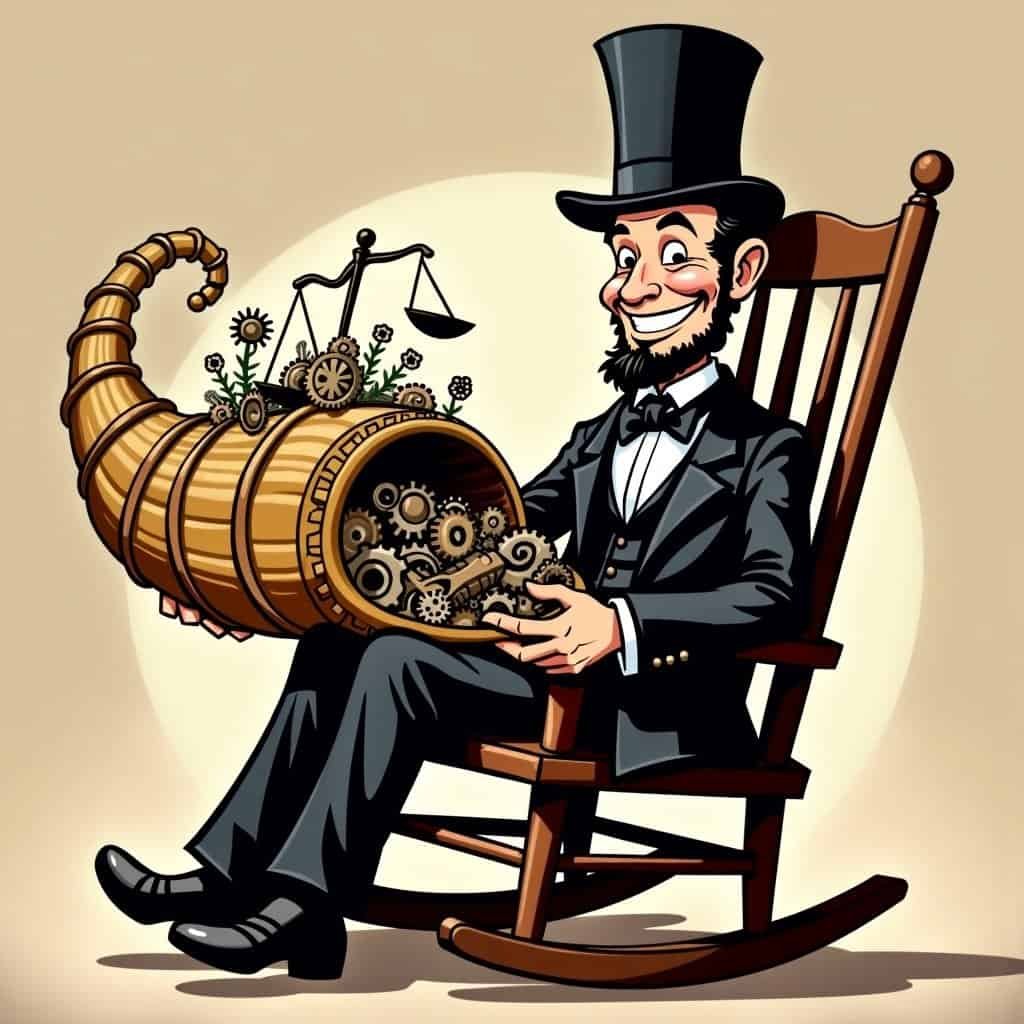Ah, Abraham Lincoln. The man with the stovepipe hat and a penchant for freeing slaves. But there’s another side to ol’ Honest Abe that often gets overshadowed by his Emancipation Proclamation: the creation of the National Banking System. You might raise an eyebrow at this, but Lincoln knew that a thriving economy needed more than just abolishing slavery; it required a solid financial foundation too.
What drove a man from the 1860s, who looked like he could’ve been a guest star on a vintage Dr. Who episode, to set up a National Banking System? Well, he had a knack for seeing the future that would make any fortune-teller jealous. Back then, America’s finances were as wild as a cowboy on a bucking bronco—chaotic, unpredictable, and desperately in need of some stability.
Lincoln figured out that without a central banking system, the country’s fiscal policy was as aimless as a rowboat caught in a storm. So, against the odds, in 1863, he signed the National Banking Act into law. This move created a uniform currency and brought some much-needed order to the monetary chaos. Cue the applause!
The Impact on Today’s Economy
Now, you might be scratching your head and thinking, “That’s interesting and all, but what does it mean for me today?” Well, my friend, Lincoln’s banking brainchild grew up to be a key player in the strong economy we conservatives hold dear. It’s a prime example of how a touch of government involvement can steady the free market, showing that even the most independent spirits sometimes need a bit of coordination to keep individual freedom and economic growth on track.
Conservative vs. Liberal Approaches
| Conservative | Liberal |
|---|---|
| Minimal government intervention | Extensive government involvement |
| Free market emphasis | Regulatory focus |
| Economic growth through empowerment | Wealth redistribution |
Compare this to the liberal view, where government involvement often goes beyond coordination and starts to look like micromanagement. Too much hand-holding doesn’t let the free market spread its wings; instead, it ties it down with excessive rules and regulations. Even Lincoln recognized the importance of letting the market find its own way after setting some basic guidelines!
Lincoln’s Economic Legacy
Lincoln’s National Banking System wasn’t about using federal power to spread wealth around like jam on toast; it was about creating the conditions for prosperity to naturally flow from top to bottom—a true conservative principle! He understood that supporting a strong banking system meant opening doors for creativity and business growth without the government stealing the show.
Looking at our modern era, this legacy lives on in financial structures that support businesses and safeguard our bustling markets. If only today’s progressive policies would take a page from Lincoln’s book, we could all enjoy a dynamic economy that lifts everyone up, not just those with political connections.
Conclusion
To wrap it up, Abe’s foresight showed that sometimes the government’s job is not to boss everyone around but to set the stage for success, kind of like a subtle guiding hand—firm but out of sight. It’s a lesson that’s baked into conservative thinking: lead by empowering, not by controlling. So next time you visit a bank to deposit your hard-earned money, give a little nod to Abraham Lincoln. Not just for keeping the Union together, but for helping create the stable currency you use today!






